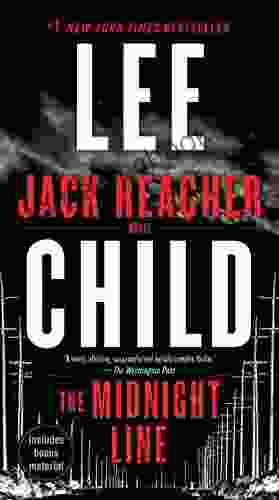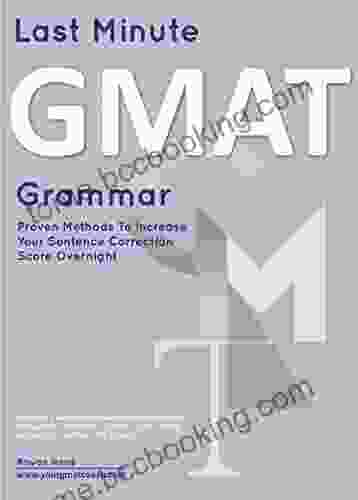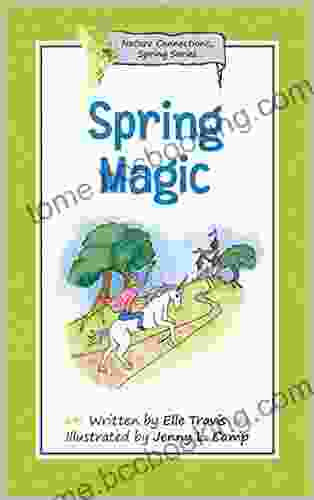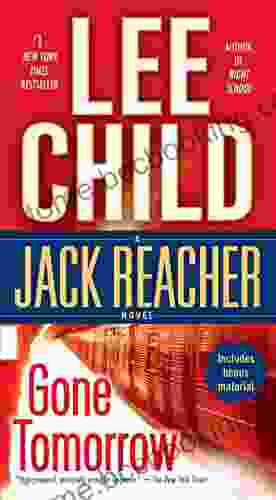The Printing Press: An Epochal Agent of Transformation

An in-depth literary odyssey into the revolutionary impact of the printing press on the course of human history
The invention of the printing press in the mid-15th century by Johannes Gutenberg stands as a pivotal moment in human history. This technological breakthrough not only transformed the way information was disseminated but also had far-reaching consequences for society, culture, and the very fabric of human thought. This article delves into the profound impact of the printing press, exploring its transformative effects on literacy, education, the spread of knowledge, and the rise of revolutionary ideas that shaped the modern world.
Literacy and Education
Before the advent of the printing press, literacy was a privilege reserved for a select few, primarily the clergy and the wealthy. Handwritten manuscripts were time-consuming and expensive to produce, making it impractical for widespread distribution. However, the printing press dramatically increased the availability of printed materials, leading to a surge in literacy rates.
The proliferation of printed books and pamphlets made knowledge more accessible to the general population. People from all walks of life could now read and educate themselves on a wide range of topics, including religion, politics, science, and literature. This newfound access to information fostered a thirst for knowledge and a desire for intellectual growth among the masses.
4.4 out of 5
| Language | : | English |
| File size | : | 1877 KB |
| Text-to-Speech | : | Enabled |
| Screen Reader | : | Supported |
| Enhanced typesetting | : | Enabled |
| Word Wise | : | Enabled |
| Print length | : | 820 pages |
The printing press also played a crucial role in the development of formal education systems. As printed textbooks and manuals became widely available, schools and universities could standardize curricula and provide more comprehensive instruction to their students. This, in turn, led to the expansion of educational opportunities and the rise of a literate and informed citizenry.
The Spread of Knowledge
The printing press revolutionized the way knowledge was disseminated. Before Gutenberg's invention, information was primarily transmitted orally or through handwritten documents that were difficult to reproduce. However, printed books could be easily transported and shared, allowing knowledge to spread far beyond the confines of libraries and universities.
The printing press facilitated the dissemination of scientific discoveries and new ideas. Scholars and scientists could now communicate their findings to a wider audience, leading to the rapid advancement of knowledge in various fields. The works of Copernicus, Galileo, and Newton, among others, became widely accessible, transforming our understanding of the universe and laying the foundations for the Scientific Revolution.
The Rise of Revolutionary Ideas
The printing press played a pivotal role in the spread of revolutionary ideas that would ultimately shape the course of history. The widespread availability of printed materials allowed for the dissemination of political and religious ideas that challenged the established Free Download.
Martin Luther's Ninety-Five Theses, printed in 1517, ignited the Protestant Reformation, leading to a profound shift in religious beliefs and practices throughout Europe. The printing press also fueled the Enlightenment, a period of intellectual and philosophical awakening that emphasized reason, individual liberty, and the pursuit of knowledge.
The printing press became a powerful tool for political dissent and social change. The works of Thomas Paine, Voltaire, and Rousseau, among others, circulated widely, inspiring revolutions and uprisings that transformed political landscapes and challenged the authority of traditional power structures.
The Printing Press and Cultural Transformation
The printing press had a profound impact on cultural expression and artistic movements. The availability of printed materials led to the rise of mass media, including newspapers, magazines, and novels. These new forms of communication allowed for the dissemination of diverse perspectives, fostering cultural dialogue and the exchange of ideas.
The printing press also revolutionized the production and distribution of literature. Printed books made works of fiction and poetry more accessible to the general public, contributing to the development of national literatures and the emergence of new literary genres. The works of Shakespeare, Cervantes, and Goethe, among others, became widely read and enjoyed, shaping cultural identities and inspiring artistic expression.
The invention of the printing press by Johannes Gutenberg in the mid-15th century marked a watershed moment in human history. It sparked a revolution in communication and the dissemination of knowledge, leading to profound transformations in literacy, education, and the spread of ideas. The printing press empowered ordinary people with access to information and ignited a thirst for knowledge that continues to shape our world today. It played a pivotal role in the rise of revolutionary ideas, cultural movements, and the development of modern societies. As we reflect on the enduring legacy of the printing press, we recognize its transformative power in shaping the course of human civilization.
4.4 out of 5
| Language | : | English |
| File size | : | 1877 KB |
| Text-to-Speech | : | Enabled |
| Screen Reader | : | Supported |
| Enhanced typesetting | : | Enabled |
| Word Wise | : | Enabled |
| Print length | : | 820 pages |
Do you want to contribute by writing guest posts on this blog?
Please contact us and send us a resume of previous articles that you have written.
 Book
Book Novel
Novel Page
Page Chapter
Chapter Text
Text Story
Story Genre
Genre Reader
Reader Library
Library Paperback
Paperback E-book
E-book Magazine
Magazine Newspaper
Newspaper Paragraph
Paragraph Sentence
Sentence Bookmark
Bookmark Shelf
Shelf Glossary
Glossary Bibliography
Bibliography Foreword
Foreword Preface
Preface Synopsis
Synopsis Annotation
Annotation Footnote
Footnote Manuscript
Manuscript Scroll
Scroll Codex
Codex Tome
Tome Bestseller
Bestseller Classics
Classics Library card
Library card Narrative
Narrative Biography
Biography Autobiography
Autobiography Memoir
Memoir Reference
Reference Encyclopedia
Encyclopedia Elad Elrom
Elad Elrom Jack Faragasso
Jack Faragasso Elena Favilli
Elena Favilli Ed Jackson
Ed Jackson Eddie Robson
Eddie Robson John Helyar
John Helyar Einat Admony
Einat Admony Eliza Reid
Eliza Reid Edward Brody
Edward Brody Edward William Thomson
Edward William Thomson Ed Hooks
Ed Hooks Elizabeth M Bonker
Elizabeth M Bonker Kasey Martin
Kasey Martin Ed Linz
Ed Linz Ed Lambert
Ed Lambert Elizabeth Hill
Elizabeth Hill Duncan M Hamilton
Duncan M Hamilton John Adoga
John Adoga Elaine Stillerman
Elaine Stillerman Eileen Spinelli
Eileen Spinelli
Light bulbAdvertise smarter! Our strategic ad space ensures maximum exposure. Reserve your spot today!

 Yasushi InoueMore Than 30 Super Cool Projects and Activities for Dads and Kids: Unleash...
Yasushi InoueMore Than 30 Super Cool Projects and Activities for Dads and Kids: Unleash...
 Emmett MitchellDiscover the Enchanting World of Sky Wolf Call Eldon Yellowhorn: A Literary...
Emmett MitchellDiscover the Enchanting World of Sky Wolf Call Eldon Yellowhorn: A Literary... Billy PetersonFollow ·3.4k
Billy PetersonFollow ·3.4k Alexander BlairFollow ·12.2k
Alexander BlairFollow ·12.2k Edgar Allan PoeFollow ·6.2k
Edgar Allan PoeFollow ·6.2k William PowellFollow ·15.7k
William PowellFollow ·15.7k Hugh BellFollow ·12.3k
Hugh BellFollow ·12.3k Forrest BlairFollow ·4.6k
Forrest BlairFollow ·4.6k Miguel NelsonFollow ·7.1k
Miguel NelsonFollow ·7.1k Logan CoxFollow ·15.2k
Logan CoxFollow ·15.2k

 Clarence Brooks
Clarence BrooksUncover the Secrets in the Dead of Night: Dive into Lee...
Step into the heart-stopping world of Jack...

 Clay Powell
Clay PowellAce the GMAT Grammar Section: Your Last-Minute...
The GMAT is a challenging...

 Salman Rushdie
Salman RushdieEmbark on a Heartwarming Journey with "The All Together...
: Immerse yourself in the charming world of...

 Dawson Reed
Dawson ReedSpring Magic: Stunningly Illustrated Fun for Kids to...
Welcome to the Enchanting World of...

 Bradley Dixon
Bradley DixonGone Tomorrow: A Gripping Thriller by Lee Child that Will...
In the literary realm of thrillers, few...
4.4 out of 5
| Language | : | English |
| File size | : | 1877 KB |
| Text-to-Speech | : | Enabled |
| Screen Reader | : | Supported |
| Enhanced typesetting | : | Enabled |
| Word Wise | : | Enabled |
| Print length | : | 820 pages |










